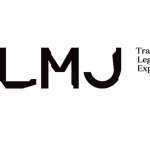For many years, most (practically almost all) of the publicly traded companies in Israel have been controlled by a single shareholder (or by a group of shareholders, acting in concert) – not unlike many other jurisdictions in the world (with the substantial exceptions of the US, Canada, Australia, and the UK)1.
Therefore, for decades the Israeli legislator has been focused on agency costs in general2 and more specifically on horizontal agency costs.3 Among other things, publicly traded companies were required to appoint at least two external directors (who have no linkage to the company and/or to its controlling shareholder/s, whose tenure is limited, whose compensation is subject to statutory caps and whose appointment is to be approved by: (i) a simple majority of all of the shareholders and by (ii) a simple majority of the non-interested shareholders, or with the objection of non-interested shareholders who hold less than 2% of the company’s voting rights – hereinafter a ‘Special Majority’4 and ‘External Directors’). Also – the approval of interested-party transactions involving or related to directors or officers is conditioned upon the approval of any or all (depending on the type and scope of the transaction and the seniority of the office holder in question) of the following organs: the board of directors (the ‘Board’), the Compensation Committee of the Board (in case of approval of terms of employment), or the Audit Committee and the shareholders (and where the interested party is a controlling shareholder – the approval of the Special Majority)5.
Changes in the Israeli Business Ecosystem
However, since 1996, and even more so since 2013, with the enactment of the Law for Promoting Competition and Minimisation of Centralisation, 5774-2013 and with the ongoing privatisation of governmental companies6, the number of publicly traded companies without a controlling shareholder/s has considerably increased (since 2010 – by 50%), and even more so – their respective market capitalisation7 has increased by 200% since 2010.
With such gradual shift, and given the rather limited scope of shareholder activism in Israel so far8 and the relatively minimal involvement of international institutional investors (let alone international activists, hedge funds, etc.)9, the Israeli legislator has decided to expand and bolster the corporate governance mechanisms intended to address vertical agency costs, ‘insider control’ and management rent seeking10, which may be expressed, among others, by soft budget11,control of the board12, and earnings management13.
The Bill
In June 2022 the government has submitted the Companies Law (Amendment No. 36) (Corporate Governance in Public Companies without a Controlling Shareholder) Bill, 2022 (the ‘Bill’).
One of the more significant amendments proposed by the Bill is the enhancement of the term ‘control’ (as defined in the Israeli Securities Law, 1968 and applied to the Companies Law) – basically defining a presumption of ‘minority control’ under certain circumstances (and thus shifting the onus from minority shareholders, who were to prove ‘de facto control’ to the holders of 25% or more of the voting power in a company (where no other shareholder holds at least 50% of such company’s voting rights) – to show lack or effective control notwithstanding such holdings).
Also, according to the Bill, in a company without a controlling shareholder(s):
- The majority of the members of the Board should be independent directors14 who have a professional capacity or an accounting and financial expertise, and at least one of them shall possess accounting and financial expertise15.
- A director may serve for terms of up to three years each.
- The majority of the directors must retire no later than the time of the second annual meeting held after their appointment.
- The Board should form a policy with regard to the composition of the Board and the required qualifications of its members (the ‘Nomination Policy’).
- The Audit Committee shall be composed of at least three directors, it shall be chaired by an independent director (as such term is defined in the Companies Law), most of its members shall be independent directors and at least one of them shall possess accounting and financial expertise.
- The Compensation Committee shall be composed of at least three directors, most of its members shall be independent directors, at least one of them shall possess accounting and financial expertise, and the rest of its members shall be directors whose compensation is determined by law. Such committee shall also be chaired by an independent director.
- The Board shall establish a Nominating Committee, chaired by an independent director and composed of at least three directors, most of its members shall be independent directors (the Audit Committee may also serve as the Nominating Committee). The Nominating Committee shall advise the Board on the Nomination Policy (and if authorised by the Board – shall form the Nomination Policy) and shall recommend to the Board (or – if authorised by the Board – to the shareholders) on Board candidates.
- Any transaction of a company with a shareholder who holds at least 10% of the voting rights in such company, as well as any transaction in which such shareholder has an interest shall be subject to the approval of the Audit Committee and the Board (but a shareholders’ approval, neither by a simple majority, nor by a special majority – as is the case with regard to transactions with a controlling shareholder(s), shall not be required).
- As per the first addendum to the Companies Law (best practices), where the same person assumes both positions of the chairperson of the Board and of the chief executive officer (or where both are related), it is advisable to appoint a lead independent director, with powers which are overlapping those of the chairperson.
- Is not required to appoint external directors.
Commentary
While it is evident that the proposed statutory amendments are necessary and are in line with common global practices, it is believed that further measures may and should be taken in order to stimulate and facilitate shareholder activism in Israel – especially by institutional investors: institutional investors should be more involved in the governance of publicly traded companies, at least in the appointment of directors in publicly traded companies in general and in publicly traded companies without a controlling shareholder(s) in particular. Our experience shows that, even with the establishment of an independent nominating committee, boards of directors are inclined to perpetuate their effective control by picking ‘more of the same’ candidate directors who are more likely to preserve the company’s current conduct. On the other hand, external candidates proposed by institutional directors may contribute to more diversity and more pluralism in the Board. We thus propose that such institutional directors should be allowed, and even encouraged, to do so, and that, to the extent necessary, co-operation among such institutional investors, in this regard only, should not be deemed as infringing any applicable antitrust/competition laws. It is further proposed that, in doing so, such institutional investors should not be considered as ‘holding together’ the shares of the company in question, for the purpose of definition of ‘Control’ under the Companies Law.
We should also note that while the Bill pays lip service to diversity (by providing that, where all independent directors are of the same gender, the newly appointed independent director should be from the other gender), ESG compliance (or at least the ‘ES’ part) is yet to be more properly, addressed by Israeli laws.
In closing, we should note that, given the rather volatile political situation in Israel (with five elections being held between April 2019 and November 2022) it will be presumptuous to estimate when (and if) the Bill will be passed (and in any case, as per the Bill, its provisions shall become effective on the first anniversary of the enactment of the amendment to the Companies Law based on the bill. Therefore, it is safe to assume that the Bill will not become effective before 2024.
2. See The Law for Amendment of the Companies Ordinance (Amendment No. 4) (Liability of Office Holders) 1991.
3. See especially Chapter 5 of the Israeli Companies Law 1999 (The Companies Law) (Transactions with Interested Parties) and s275 of the Companies Law – Transaction with a Controlling Shareholder. For further comparative reading see: Cronqvist, H, Nilsson, M. (2003) Agency Costs of Controlling Minority Shareholders, The Journal of Financial and Quantitative Analysis 38 (4) 675-719 www.jstor.org/stable/4126740; Pargendler M., Controlling Shareholders in the Twenty-First Century: Complicating Corporate Governance Beyond Agency Costs (2019), Journal of Corporation Law 45 (4) 953.
4. Section 239 of the Companies Law. The controlling shareholders are considered as interested parties for this majority.
5. See ss270-275 of the Companies Law.
6. See Paz Fuchs A., Mandelkern R., Galnoor I. (2018) The Privatization of Israel – The Withdrawal of State Responsibility; Gurkov I, (2007) Privatization in Israel, The Creation of a Mature Market Economy, Annal of Public and Cooperative Economics ypfsresourcelibrary.blob.core.windows.net/fcic/YPFS/Gurkov%20-%202007%20-%20PRIVATIZATION%20IN%20ISRAEL%20The%20Creation%20of%20a%20Mature%20M.pdf
7. The data was generated by the Israeli Security Authority (Department of Research, Development and Strategic Economic Consulting); Debentures companies and dual-listed companies were not included.
8. See insights.issgovernance.com/posts/shareholder-activism-in-israel/#:~:text=Shareholder%20activism%20is%20particularly%20buoyed,to%20call%20special%20shareholder%20meetings.
9. See a research paper issued by the Israeli Securities Authority: The Impact of International Institutional Shareholders on Publicly Traded Companies in Israel (2019). www.isa.gov.il/GeneralResearch/179/Documents/International_investments_in_israel.pdf (in Hebrew).
10. Buchanan, J.M., Tollison, R.D., Tullock, G., & Zeckhauser, R. (1983). Toward a Theory of the Rent-seeking Society. Southern Economic Journal. 48(3), 339–345. doi.org/10.1086/261125
11. Li, D.D. (1998). Insider control and the soft budget constraint: A simple theory. Economics Letters, 61(3), 307–311. doi.org/10.1016/S0165-1765(98)00151-7
12. Baran, L., & Forst, A. 2015. Disproportionate Insider Control and Board of Director Characteristics. Journal of Corporate Finance, 35(1), 62–80. doi.org/10.1016/j.jcorpfin.2015.08.006
13. Gopalan, R., & Jayaraman, S. (2012). Private control benefits and earnings management: Evidence from insider controlled firms. Journal of Accounting Research, 50(1), 117–157. doi.org/10.1111/j.1475-679X.2011.00431.x
14. Currently this is merely a ‘best practice’ recommendation, as per the first addendum to the Companies Law.
15. A ‘Professional Capacity’ is defined under the Companies Regulations (Conditions and Criteria for a Director with Accounting and Financial Expertise and for a Director with Professional Capacity), 2005 (the ‘Professional Capacity Regulations’) as either a professional (law, economy, business management, accounting or public management) academic degree, an academic degree which is relevant to the respective company and/or the respective role, or sufficient experience in senior positions). ‘Accounting and Financial Expertise’ is defined in the Professional Capacity Regulations as the ability to thoroughly understand and discuss financial statements – given the director’s academic and professional background, as evaluated by the Board.
For more information, please contact:

Eitan Shmueli, partner, head of capital markets and securities department

Amir Zolty, partner in the technology, corporate, M&A department and head of the high-tech practice
Lipa Meir & Co.
Beit Amot Investments Tower
2 Weizmann St. Tel-Aviv 6423902 Israel
T: +972-3-6070600
E: info@lipameir.co.il














